Addressing sand production challenges—an integrated research approach
Seng Lim A , Bailin Wu A , Xavier Choi A , Chong Yau Wong A , Bahrom Madon B , Maharon Jadid B , Zurita Johar B , Amir Zamberi B and Amira Shaffee BA CSIRO.
B PETRONAS.
The APPEA Journal 55(2) 445-445 https://doi.org/10.1071/AJ14080
Published: 2015
Abstract
Sand production may be induced by many factors, such as reservoir pressure depletion, excessive draw-down pressure and water cut. When transported from the formation, the sand particles can cause serious damage to completion and topside assets, impacting the overall productivity and safety of the operating wells.
The sand management strategy for a particular field requires careful planning, evaluation and implementation to ensure effective and safe well productivity.
The associated CAPEX and OPEX implications and risks can be high if the sanding problem is not managed carefully. This requires a good understanding of field-specific sanding problems.
PETRONAS and CSIRO have collaborated on an integrated research program to provide a better understanding of the critical issue affecting sand production and develop associated predictive tools. This involved a multidisciplinary team from geomechanics, fluid mechanics and mathematics to examine the entire sand production process from sand generation, control and transportation to ensure an optimum sand management strategy.
This extended abstract provides an overview of the research methodology based on experimental and numerical modelling techniques supported by field information. The study focuses on sand production behaviour, as well as failure of down-hole sand control equipment.
The research led to better prediction and quantification of the sand production propensity, as well as erosion severity on critical production equipment. Insights and operational guidelines were also established to assist production and facility engineers in managing sand production challenges.
This integrated research methodology would be applicable to unconventional resource areas, such as coal seam gas or shale gas production.

Seng Lim (B Eng, Chem Eng, 1988; PhD, Chem Eng, 1992, Adelaide University) is a research group leader in the CSIRO Energy flagship, where he leads and manages capability group and industry research projects consisting of multidisciplinary teams in the oil, gas and fuels domain. He is a project manager for the sand management research project at CSIRO and also a specialist in powder and particulate flow systems and a member of SPE. |

Bailin Wu (B Eng, Mining Eng, 1982, Shandong College of Science and Technology; MSc, Rock Mechanics, 1985, Chinese Academy of Sciences; DIC & PhD, Rock Mechanics, 1991, Imperial College) is a research scientist in the CSIRO Energy flagship, where he is a project leader on sand production and wellbore stability. Prior to joining CSIRO, he was a rock mechanics engineer with BP, a geomechanics specialist and a team leader with Schlumberger. Member: SPE. |
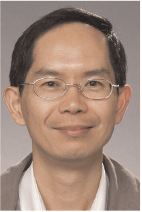
Xavier Choi (B Eng, Civil Eng, 1980; PhD, Geomechanics, 1984, Monash University) is a senior principal research scientist in the CSIRO Energy flagship. His expertise is in the numerical modelling of multiphysics and multiscale problems in civil, mining and petroleum geomechanics. Member: SPE. |
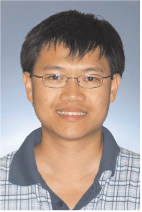
Chong Yau Wong obtained his mechanical engineering degree (Class I Honours) from the University of Adelaide in 2000, and his doctorate from the same institution in 2004. Chong then worked as a post-doctoral fellow specialising in laser diagnostics (particle image velocimetry and laser Doppler velocimetry) for two-phase flows at the University of Adelaide until 2006. He then investigated the structure of turbulent boundary layer flows with PIV/Stereoscopic-PIV systems at Monash University until early 2008 when he joined CSIRO. Chong now works at CSIRO as a research scientist and is involved with industrial projects involving multi-phase separation technologies, droplet dynamics, multiphase erosion, sand transportation for the minerals and petroleum industries, and the industrial scale-up and separation of microalgae for bio-fuel production. He has published more than 50 conference and journal papers on fundamental and applied fluid mechanics and particle erosion. |
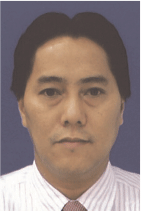
Bahrom Madon (B Eng, Petroleum Eng, 1990, University of Technology, Malaysia) is a senior manager in PETRONAS where he leads and manages specialised Studies group to identify, recommend and implement new technology application by conducting feasibility study that includes performing technical risks as well as cost analysis to enhance the value of PETRONAS upstream asset. He is also a principal engineer focusing on well technology-related areas such as design and operation of sandface completion, sand control and artificial lift. |
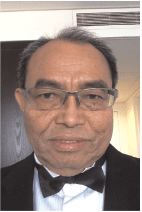
Maharon Jadid obtained his chemical engineering degree (hons) in 1976 from the University of Malaya (Kuala Lumpur, Malaysia). He started working as a wellsite petroleum engineer for Shell in Sarawak/Sabah. Including some five years of overseas postings in UK and Norway, Maharon has worked as a senior petroleum engineer at Shell for some 19 years. After a short stint in Crest Petroleum he joined PETRONAS Carigali Sdn. Berhad in 2004 as a staff production technologist. He was promoted as Principal and eventually as Custodian Production Technologist specialising in sand face completion and sand control management. He is the champion and advisor for subsurface sand onset prediction and sand erosion research for PETRONAS. |
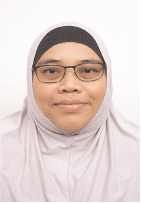
Zurita Johar graduated from Universiti Teknologi Malaysia with a degree in petroleum engineering in 2000 and started her career at PETRONAS in January 2002. She joined the Production Technology Department (PET) and started working for Field Development Plan (FDP) for multi-field gas development. In 2007, she was transferred to Myanmar to support production enhancement and well-surveillance activities. She was the manager of New Technology & Deepwater since 2010, prior to becoming a staff production technologist in the specialised studies section of PET. She has led two major research and development projects in integrated sand management with CSIRO Australia. |
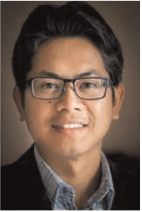
M. Shahrul Amir B. Zamberi obtained his chemical and process engineering degree (hons) in 2006 from the University of Canterbury (Christchurch, New Zealand). He started his career at PETRONAS as a process engineer in the LNG business for two years before pursuing his interest in research at PETRONAS’s Technology and Engineering (T&E) Division. For the past five years, he has focused on the development and application of new technologies on sand control and management. He has authored and co-authored more than 20 technical publications and reports, and is the inventor of several patents. |

Amira Shaffee (B Eng, Chem Eng, 2008, Universiti Teknologi PETRONAS) started her career as an engineer in 2009 and since then has been involved in various research & development and technical consultancy projects in solving oil and gas field challenges related to sand management. She is now with PETRONAS Group Technical Solutions and her areas of focus include geomechanics, sand production prediction, erosion and transport. |


